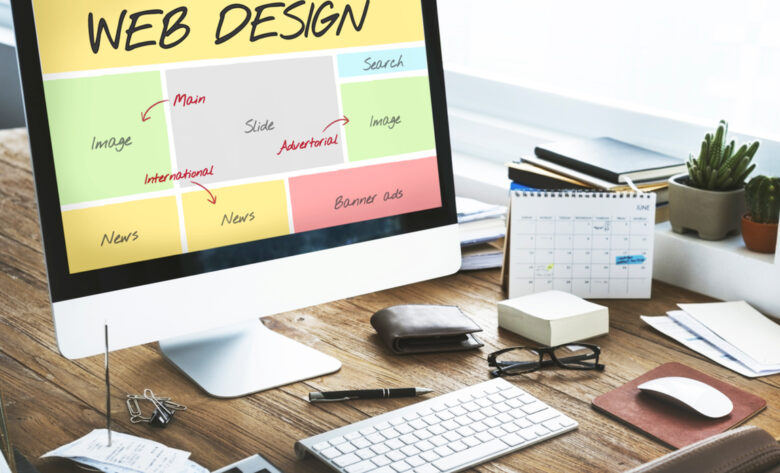To make your website relevant, an intelligent web design is just as important as having an online presence. Despite popular belief, the planning and development of aesthetic components is just a small portion of web design. The goals of the site, the tasks it is meant to accomplish, the demographics of its expected users, and the volume of traffic are all factors to be considered while making design decisions.
The procedure most digital website design companies in Dubai like Redberries use for developing websites is as follows:
To start with, they have firsthand information about your organization that they use to design customized website designing solutions.
After that, the site designers research the offerings of your rivals and the industry.
Finally, they provide you with a highly responsive web design that exceeds your company’s demands through data-driven expert knowledge and user experience.
A company’s website is a significant representation of that company in the modern day. If a consumer has a negative interaction when shopping online, they may never return and may even buy from a rival instead. If the design of an internal site meant to act as a directory of resources is subpar, it will not be well received by staff members.
Therefore, most of businesses need help from professional website designing agencies. Some other benefits you can receive through hiring the right agency are:
- Increased focus and return visits because of usability improvements.
- Making the website’s design a potent branding tool.
- Showcasing the appropriate intent and message.
- Making information easier to access.
There are several facets to what we collectively call “web design” or “website design.”
Design factors like layout, color palette, and iconography as well as site structure and information flow are also important.

Source: techdonut.co.uk
Key Features of Custom Website Designing Solutions
User Experience (UX) Design: User experience is a critical aspect of custom website design. It involves optimizing the website’s layout, navigation, and functionality to create a seamless and intuitive user journey. UX design ensures that visitors can easily find the information they need, engage with the website’s features, and have a positive overall experience.
Responsive Web Design: With the increasing use of mobile devices, responsive web design is essential. It ensures that the website adapts and displays properly on various screen sizes, providing a consistent and user-friendly experience across desktops, tablets, and smartphones. Responsive design improves accessibility and user satisfaction while also positively impacting search engine rankings.
Customized Visual Elements and Branding: Custom website design allows agencies to incorporate unique and visually appealing design elements that reflect their brand identity. This includes customized color palettes, typography choices, logo placement, and graphic elements that align with the agency’s values and target audience. Customized branding enhances brand recognition, creates a memorable impression, and fosters a sense of professionalism.
Integration of Content Management Systems (CMS): Content Management Systems enable agencies to manage and update website content without technical expertise. Custom website design ensures seamless integration of a CMS that best suits the agency’s needs. It empowers agencies to easily add or modify content, publish blog posts, update product information, and keep the website fresh and relevant.

Source: hackernoon.com
E-commerce Functionality and Online Stores: For agencies that offer products or services online, custom website design includes the integration of secure and user-friendly e-commerce functionality. This allows agencies to showcase their offerings, manage inventory, process transactions securely, and provide a smooth online shopping experience for customers.
Search Engine Optimization (SEO) Considerations: Custom website design takes into account SEO best practices to enhance the website’s visibility in search engine results. This includes optimizing page structure, meta tags, headers, and content to improve organic rankings. Custom design also allows for the implementation of SEO-friendly URLs, site speed optimization, and structured data markup, increasing the chances of attracting targeted organic traffic.
Scalability and Future-Proofing: Custom website design considers the agency’s growth and future requirements. The website is built with scalability in mind, ensuring it can handle increased traffic, content expansion, and new functionality. Future-proofing involves using modern coding techniques, adhering to web standards, and leveraging flexible frameworks that allow for easy updates and additions.
Mobile-Friendly Design: Mobile devices are increasingly used for browsing and accessing websites. Custom website design prioritizes mobile-friendliness by employing responsive design techniques, optimizing touch interactions, and ensuring fast loading times on mobile devices. This enhances the user experience for mobile visitors and helps agencies capture the growing mobile market.
Accessibility and Inclusivity: Custom website design considers accessibility standards and guidelines to ensure that people with disabilities can access and use the website. This involves implementing features such as alternative text for images, proper heading structure, keyboard navigation compatibility, and color contrast considerations. An accessible website demonstrates inclusivity and compliance with legal requirements, broadening the agency’s reach and audience.

Source: searchenginejournal.com
Performance Optimization: Website performance is crucial for user satisfaction and search engine rankings. Custom website design involves optimizing various aspects, such as image compression, minification of code, browser caching, and server-side optimizations, to improve website speed and performance. A fast-loading website enhances user experience, reduces bounce rates, and increases conversion rates.
Security Measures and Data Protection: Custom website design prioritizes the implementation of robust security measures to protect user data and ensure secure transactions. This includes integrating SSL certificates for encrypted communication, using secure payment gateways, implementing strong user authentication mechanisms, and regularly updating software and plugins to patch security vulnerabilities.
Testing and Quality Assurance Processes: Custom website design involves thorough testing and quality assurance to ensure the website functions flawlessly. This includes testing across different browsers, devices, and user scenarios to identify and fix any bugs, usability issues, or performance bottlenecks. Quality assurance ensures a seamless user experience, minimizes downtime, and maintains the agency’s professional reputation.
Ongoing Support and Maintenance Services: After the website is launched, custom website design solutions include ongoing support and maintenance services. This may involve providing technical support, resolving issues, updating software, and ensuring the website’s security. Ongoing maintenance ensures the website remains up-to-date, secure, and optimized for performance.

Source: ultimateds.com
Conclusion:
Similarly, most web design agencies are known for producing innovative, attention-grabbing website layouts. Hire the best web design company in Dubai as they are aware that every company has its own specialties. Moreover, they have the expertise to implement a website layout that meets your requirements. This allows them to provide you with a high-quality solution that can help your company expand.
